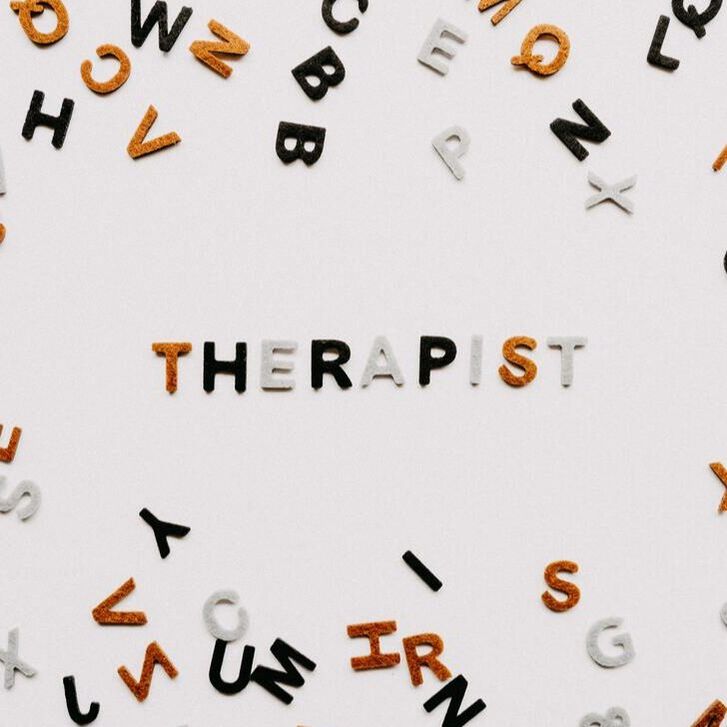|
Are you in the process of looking for a therapist? Then you already know how difficult it can be to find the right therapist for you. You've probably already run into dead ends or even started with a therapist and decided it wasn't the right person for you. At the end of the day, don't give up. There are hundreds of thousands of mental health professionals practicing today, with a little patience and determination you will find one that is a good fit for you. Here I've broken down the process of finding a therapist into a step by step process. Starting even before you reach out to a potential therapist and ending with what to reflect on after your first few sessions with a new person. Considerations: The right fit is potentially the most important part about finding a therapist. Sometimes this can only be assessed after a few sessions, but there are things to take into consideration that may help increase the chances of success. Your Checkboxes What are you looking for in a therapist? This could be as concrete as location, gender identity, age range, or therapeutic modality or as ambiguous as personality traits. Make yourself a list of checkboxes to bring up with a potential therapist. Sample checklist: ✓ Identifies as female or gender non-conforming ✓ Same generation ✓ Licensed as a psychologist ✓ Accepts my insurance ✓ Within 10 miles of where I live ✓ Works with depression ✓ Uses a mindfulness approach ✓ Warm and gentle demeanor Therapist Limitations Therapists are not trained to treat all clients. They have limitations due to their training or experience. Therapists often list their specialties in directories or on their website. Therapists may choose to work with a certain type of client, such as only adults or only with certain diagnoses. This isn’t meant to exclude people from a therapist’s practice, it is to ensure that the therapist will be an effective guide for you in the therapeutic process. Finances: So now that you know what you are looking for in a therapist you are ready to start looking. But where should you start your search? Start with these questions. 1. Do you have health insurance and are you planning to use it to cover part of the cost of seeing a therapist? There are two ways to locate a therapist if you are planning to use insurance. One you can look at the provider finder on the insurance companies website. This is a good first step to determine who may be paneled with your insurance company. I emphasize the world “may,” because these lists are ever changing and sometimes not up to date. Once you find someone on a provider finder, use the link to their website or Google to see if you can access more information about them. If you are not having luck with the provider finder, view the resources below on how to locate a therapist and then check to see if they take your insurance. 2. Are you looking for someone with a sliding scale? What does a sliding scale mean? Many therapists who don't take insurance offer a sliding scale or another model of payment to help offset the cost for those who qualify based on income. There is no standard for who qualifies for a sliding scale, it is based on the therapist's discretion. Sliding scale payments mean that some people within a therapist's practice may pay different fees based on need. So the fee is not fixed, it slides based on client's ability to pay. 3. Are you able to pay the private pay rate? Private pay therapists typically post their hourly rate on their website or landing page. If they don’t, they will tell you over the phone when you reach out to them. Private pay rate can range anywhere from $50-$500 dollars. A more typical private pay rate is between $100 and $200. Keep in mind that therapists spend many years in training and supervision and have business and living expenses, so it is important that they are paid appropriately for their time. It is also important that you continuously assess if it is worth your time and money. Resources: Now that you know what you’re looking for, where do you start your search? Your Personal Network Ask around. How did your friends find a therapist? What was the process they went through. What did they find the most helpful in the process? People with recent lived experience are our best resource. Insurance Websites As stated above, if you have health insurance, your insurance company likely has a provide finder resource. EAP Program If your employer has an EAP or Employee Assistance Program there is a number you can call. This person then helps you find a therapist typically for a limited amount of sessions. Then, you can determine if it is something you would like to continue. Therapist Directories There are hundreds of therapist directories out there. These are likely a little more up to date, because the therapist often manages their own listing. Psychology Today is the most widely used, but there are other options with search features that promote inclusivity. Modality Directories If there is a particular therapy modality you would like to try, for example EMDR (Eye Movement Desensitization and Reprocessing) or Psychodynamic therapy, there is likely a directory of therapists trained in that specific modality. A simple Google search should lead you to it. When all else fails turn to Google. Top searches in your area will likely include group therapy practices, which can save you time in your search as one phone call will connect you with multiple therapists. Road blocks: This may be a smooth, easy process. You may locate a therapist through your insurance or a search and they have openings that work with your schedule. You may click right away and start building a strong therapeutic alliance. However, this is the exception, not the rule. Here are some common road block and how to navigate them: 1. The therapist doesn’t call you back. Unfortunately, this is common. Responding to client inquiries is incredibly time consuming and therapists often run their own businesses. This is often an indicator that the therapist does not have any openings, but sometimes persistence pays off if you make a second call. 2. The therapist doesn’t have availability. Some therapists keep a waiting list. If they don’t have a waiting list, they likely have a referral list of other therapists to contact. 3. You attend a session, but it doesn’t feel right. One of the biggest things people work on in therapy is building agency and self-advocacy skills. Here's your chance to practice early. When the therapist asks if you'd like to schedule ongoing sessions, simply tell them you'd like to think about it and get back to them. If the therapist is holding a time slot for you, it is considerate to let them know you are going in a different direction. Remember, therapists are very used to people trying out different providers and moving on after a few sessions. The therapist would even be happy to offer you a referral or help you connect with another therapist. Ultimately, all of our goal is that people gain access to therapy that is the right fit. Reflections: Hopefully, this has been helpful to your process. If you would like to leave a comment about how you found your therapist it may be helpful to others just starting this process. "As a therapist, I am a companion. I try to help people tune into their own wisdom." - Virginia Satir
2 Comments
8/24/2021 04:43:11 pm
Thanks for your suggestions on how to pick the best therapist. I love how you recommend asking around your circle of friends for referrals. I think it would also be smart to read online reviews.
Reply
6/3/2023 10:50:37 am
This article serves as a valuable resource for anyone navigating the process of finding a therapist, making it less daunting and more empowering. Thank you for sharing this helpful information and empowering individuals to take charge of their mental health journey.
Reply
Leave a Reply. |
WelcomeI'm Kerry (She/Her/Hers) and I am a licensed therapist, group facilitator, poet, writer, & speaker. This is a place to acknowledge and validate our suffering and trauma, while also learning how to turn toward aliveness and spaciousness. Categories
All
Archives
April 2024
|
|
Copyright © 2024 Kerry J Heckman All rights reserved. Disclaimer.
|
|





 RSS Feed
RSS Feed